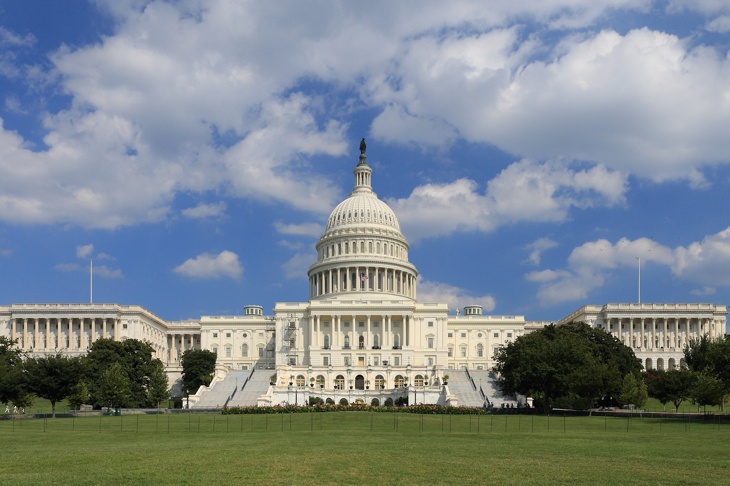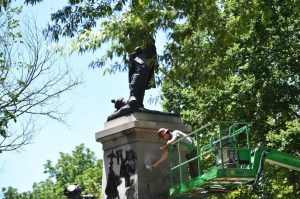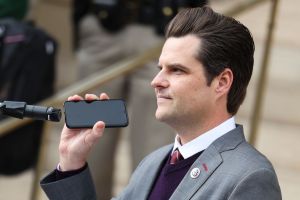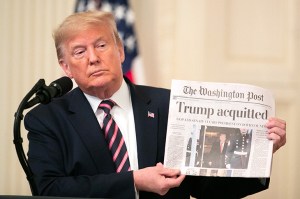A couple of months ago, I moved to the capital of the United States. I had one year of university left and applied for a fellowship (in journalism) in my final term which parachuted me into the world of Washington D.C. The view from my bedroom window is now the distant Capitol Building and the White House is a short walk away from my work.
It’s surreal passing by Congressional buildings knowing policy is being made at any moment that can impact the entire nation. It’s particularly surreal because as I fell deeper into the Washington culture, I realised how profoundly different everyone here is to the people they represent across the rest of America — and, worse, how very little they really care about them. You might think you have a ‘bubble’ in your home state; that the urban elite are out of touch with other people, but it’s nothing to the divide here.
Washingtonians make it a big deal to claim where they’re from. Next to that, it’s what you do, who you work for and where you went to university. There’s no such thing as a humble brag here, you have to boast. If you don’t work in politics, media or law, you begin to rank lower in the metropolitan pecking order. When I tell people where I’m from I get similar responses: Did you grow up on a farm? Is that Trump country? They’re interested, but only to gawp.
I’m from a small town in Southern Illinois that seems to be on its way to disappearance. Every time I come home, I notice more and more small businesses being replaced by chains. Downtown is only one street long, and so many people count on our small and family-owned businesses. Our local Labor and Industrial Museum remains nostalgic towards the 19th century which brought us strength in manufacturing, mining and farming. The purpose is to shed light onto a prosperous past, but no one much looks towards the future, let alone the declining present. Most people now commute across the river to the nearest city of St. Louis to work.
We’re the lower to average middle-class Americans that are talked about frequently by politicians, but often abandoned. We’re not struggling, but by no means affluent with a poverty rate that’s higher than the national one. My town is the definition of unpretentious. There’s never been a visible gap in wealth and everyone always knew what neighborhoods were well-off and which ones were more low-income residents. Money was never a secret and there’s a fair blend of white and blue-collar workers. No one is overwhelmingly wealthy, and it’s fair to compare the richest people in town to the poorest in Washington.
My childhood, I’ve discovered, was very different to that of most Washington insiders. I grew up comfortably but started working at 16 like many other teenagers getting their first job for experience. Throughout high school, I worked several jobs along with my friends. It was uncommon not to have a part-time job. A strong work ethic and involvement is important in our Community. On top of taking out student loans, I was constantly juggling two or three jobs throughout school to pay off my tuition fees and living expenses. My friends from home were doing the same and we never thought anything of it. My new Washington acquaintances had a different experience. More often than not, they relied on their family’s finances to cover not only their education and living costs, but their personal expenses too. I mention this not to show off, but because it’s important to know that many of our political class haven’t the faintest clue how hard it is to make money.
Within weeks in Washington, my financial security became a balancing act. The money I had saved up was quickly disappearing on transportation alone. Even after applying for over 20 part-time positions, it took weeks to get a single call back to be told they were staffed. The cost of living wasn’t surprising to me, the questions from my Washington peers was. Why did I want a side job? I was asked. It barely occurred to anyone that I needed the money.
Last year, it was reported that property prices at $1 million rose by 33 percent in the first quarter alone and there are 34 billionaires within a 25-mile radius in D.C. I was attending a press conference where one politician was boasting about the fact that they were the only ones in their county who wasn’t a millionaire. Another journalist I met told me they were better able to relate to poor people because they worked a minimum wage job one summer in high school.
Washington is blind to middle America, and middle America knows it. There is an understanding that things will remain stagnant no matter who is in office. A decade from now, I don’t know if my hometown will exist in the same way I knew it growing up. The promises of improvement often end in disappointment. Closures, unemployment and poverty. I have a better understanding now as to why. Our leaders will never grasp the devastation behind another closed shop, the defunding of school programs or the impact of job losses. They represent us only in name.


















